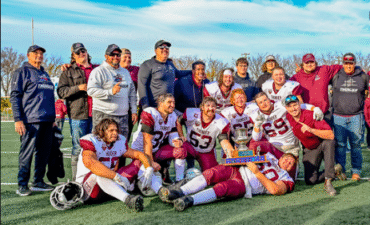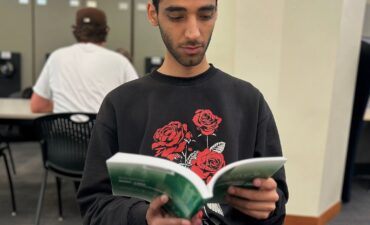
With Canadians headed to the polls Monday, university students were eager to voice their opinions. A wide-range of issues were brought up during interviews at an on-campus polling station.
“For me, climate change, high tuition and the challenge of finding a job out of university scares me,” said education student Chloe Gill.
Her comments were echoed by many students.
In an interview with the CBC back in January, CEO of Abacus Data, David Coletto, said the population of eligible voters who are a part of generation X and Z, adults ages 18 – 34 make up upwards of 37 per cent the total population – the largest voting group in Canada.
Future Majority is a non-partisan, non-profit organization focused on motivating young people to exercise their democratic right to vote in this election.
“Our goal is to get young people involved in voting,” said Future Majority’s University of Regina field organizer, Reese Estwick. “Getting people out to the polls and actually holding politicians accountable for issues that are important to [them].”
Issues on economics were voiced.
“Around here, the carbon tax and the energy sector are big parts of [our economy],” said 20-year old business student Dawson Hogg. “Job creation is a big factor.”
Some had more personal reasons.
“I don’t like Trudeau,” said Hannah Schmidt, a 19-year old social work student. “He is very corrupt and broke lots of ethical rules.
“I do have liberal views. I like how [they] want to have equality for people of different race, gender or sexual orientation … I do think Trudeau has to pay.”
Others feel the voice of young people does not matter to politicians.
“It isn’t important; nothing changes,” said voter Jacob Lines, an electrical engineering student at the University of Saskatchewan. “The government doesn’t listen and they barely do anything that affects me.”
“There has been a lot of apathy in the younger generation [to vote],” said Estwick. “A big part of it is they are not educated. They haven’t had those connections to the politicians.”
From 2011 to 2015, Statistics Canada said voting turnout in young people ages 18 to 24 and ages 25 to 34 rose 18.3 per cent and 12.3 per cent respectively – the largest increases of any age group. The increase of advocacy from groups like Future Majority has forced politicians to put a larger focus on the voice of young adults.
“Politicians are noticing young people are going out and voting,” said Estwick. “On this campus alone, we walked 805 students to [advanced] polls. They want their voice to be heard.”















